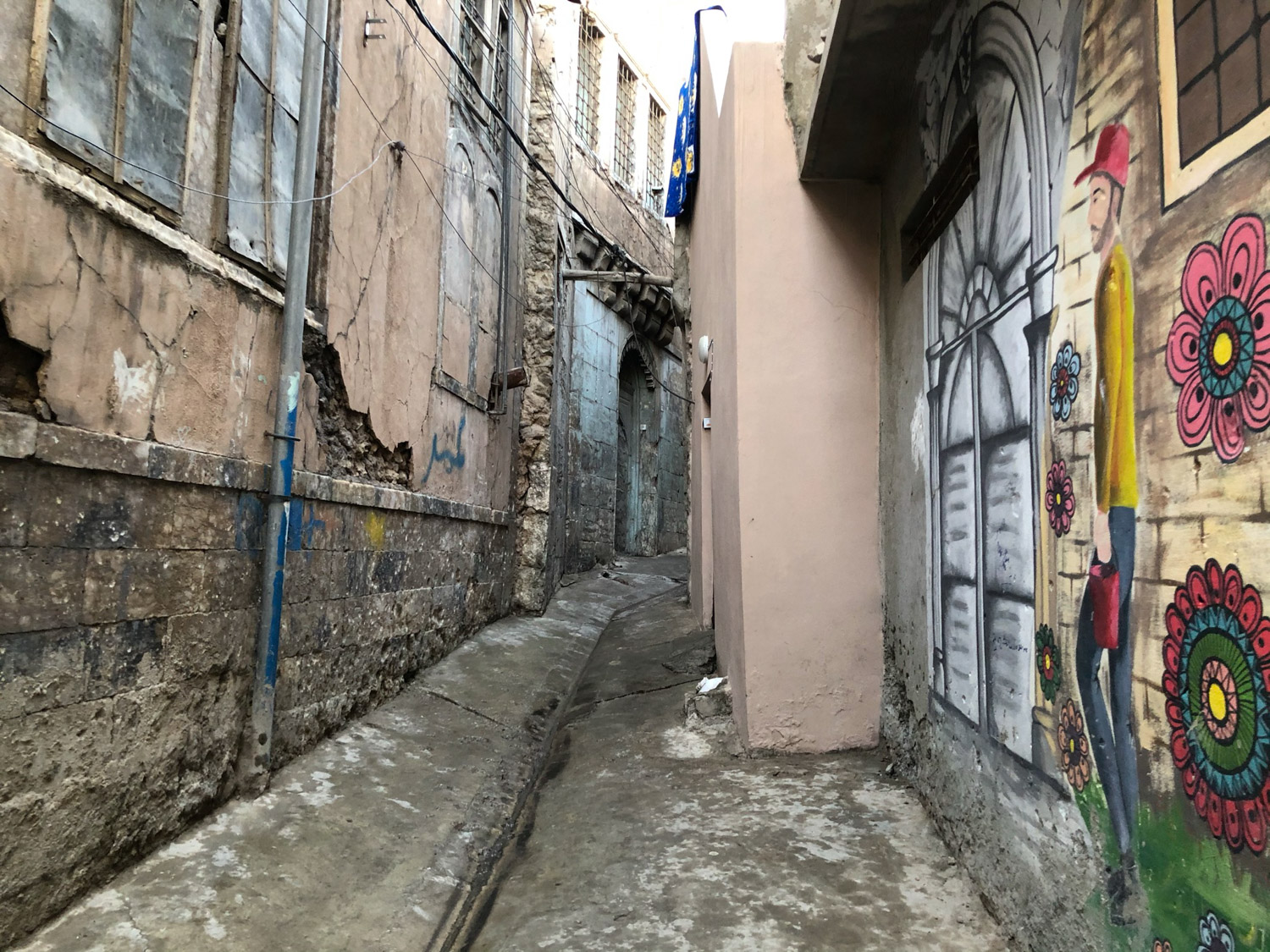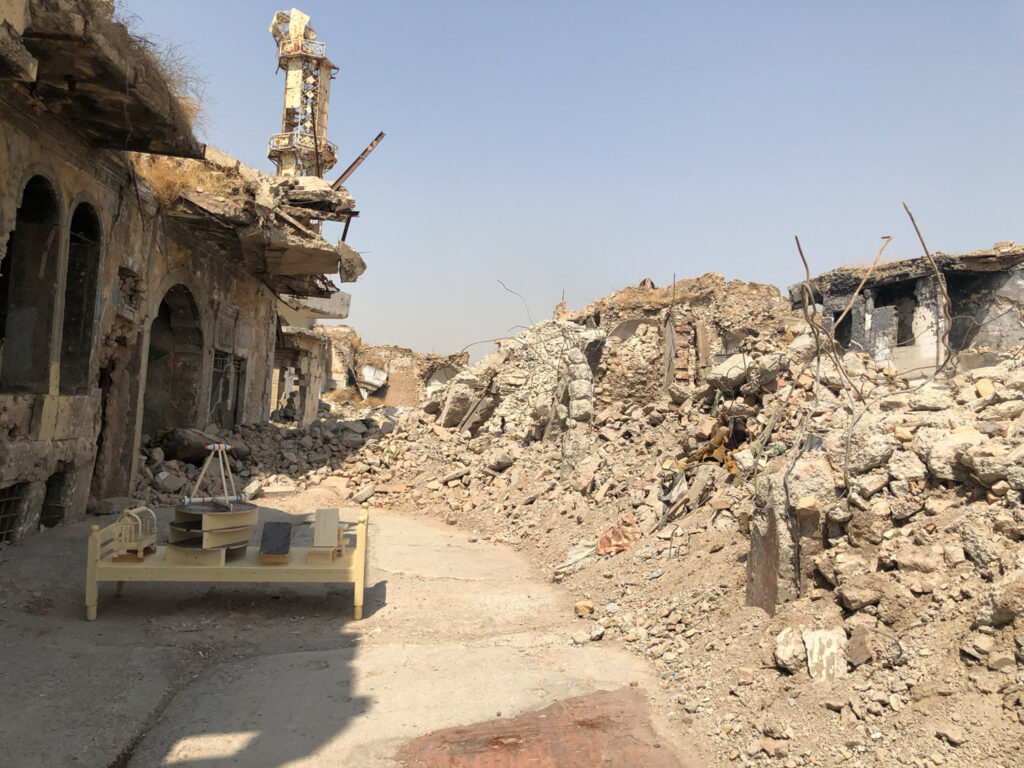
Research Grant
The (re)inscription of Memory
The field trip aimed to collect data relating to ‘hidden’ places of cultural heritage, collective memory and first-hand stories and experiences in pre-war Mosul, to help understand the dynamics of the reconstruction for post-war Mosul.
By Yousif Al-Daffaie
Valuing the Informal Practices, Spatial Memory and Local Narratives within the Physical Recovery of Mosul’s Old Town
Following multiple delays due to COVID and logistical reasons, I was finally able to spend two weeks in Mosul’s Old Town between the 12th and 26th of September 2020. The field trip aimed to collect data relating to ‘hidden’ places of cultural heritage, collective memory and first-hand stories and experiences in pre-war Mosul, to help understand the dynamics of the reconstruction for post-war Mosul. The fieldwork was a part of a PhD Project funded by Nottingham Trent University and linked to a Nottingham Trent University research project entitled: “Preserving the Disappearing Heritage of Post-War Mosul”. The Fieldwork was sponsored by the British Institute for the Study of Iraq (BISI) and Nottingham Trent University.

Mosul’s Old Town is made of a network of ‘veins’ in the form of narrow alleyways, locally called “Awjat”. Within these Awjat, there are generational craftsmen and shop owners who have inherited their respective crafts and shops from their parents and grandparents. Those who have remained in the Old Town following the war and refused to migrate the left side and surrounding provinces, have funded the reconstruction for their own shops and homes, with no external/governmental help. They explained this as an “emotional connection that compels us to work here and disables us from accepting to work anywhere else”. This bond and relationship has shown its strength following the devastating liberation operations in 2017, in which almost all the shops in the city’s most dynamic markets, have been damaged on different levels. The gradual return and rejection of reopening elsewhere have shown a connection to the city that is unprecedented in the modern history of the city of Mosul.
Therefore, I have focused on documenting this connection through personally visiting these shop owners and craftsmen, interviewing them and documenting their crafts. These connections were documented visually and verbally and attempted to capture actions as well as stories and experiences. All interviews and documentation were recorded following verbal and/or signed informed consent from the participants, which allows them the withdrawal of data upon request. Most of the locals in the Old Town were very open and expressive when it comes to their past, their generational legacy, and the de facto and de jure changes that they underwent in the post-war era of Mosul.
The shop owners and craftsmen introduced me to their family and friends that work in different lines of crafts and commerce. Upon moving from one market to the other, I found myself immersed in a network of Awjat, surrounded by reconstructed and destructed houses, hearing the voices of children playing and families conversing. I felt out of place as it felt like a closed community where everyone knew each other, due to the very close proximity of houses to each other, and the narrow nature of the Awjat. However, these Awjat drastically increases the permeability of the city, and it helped navigate from one major street/market to the other. I found myself moving from Bab Al-Saray (Which holds spice shop owners, blacksmiths, carpenters, traditional Arabic dress shops, and other commercial shops) to Al-Najafi Street (which holds traditional bookshops and goldsmiths), naturally using the Awjat.
I have met with all of the craftsmen aforementioned in Bab Al-Saray, Al-Najafi street and Al-Sirjkhane, as well as the site-engineer of the Nuri Mosque building site. I was invited to observe and explore the reconstruction site of the mosque and ask about the plans for the reconstruction. I have also spoken to multiple academics from the University of Mosul, as well as run a one-day workshop to discuss the data collection methods in post-war sites, and perspectives on the priorities of reconstruction. Following the extensive talks with the academics and the site engineer, it is agreed that attention to the ‘makers of cultural heritage’ is currently lacking in the reconstruction plans, and that projects like mine must be taken forward to enhance awareness of Mosul’s ‘hidden heritage’.
Recent Projects
BISI works to advance research and public education about Iraq in all of the arts, humanities and social sciences subjects, and enables exchange and collaboration between UK and Iraqi academics. Our grants and scholarships have helped the fund the following research projects.
Research Grant
The (re)inscription of Memory
Research grant








